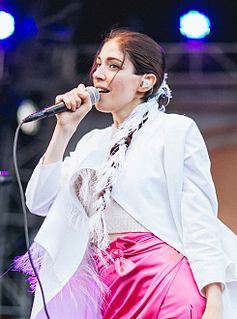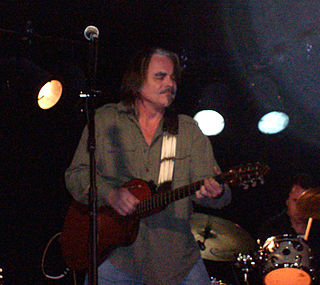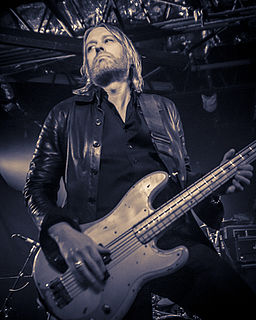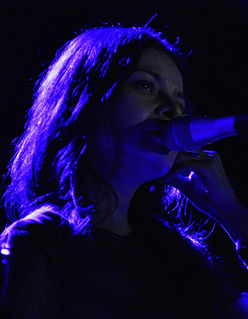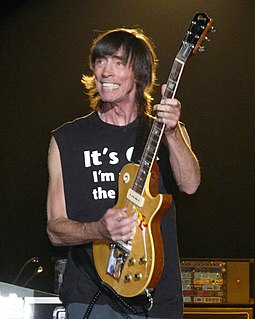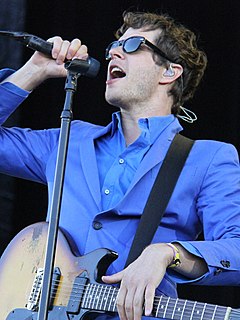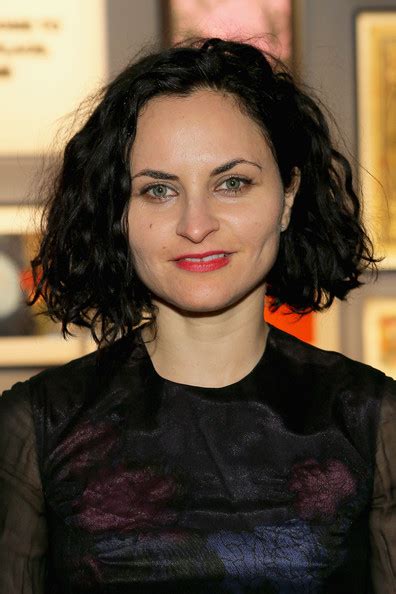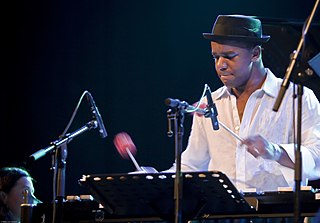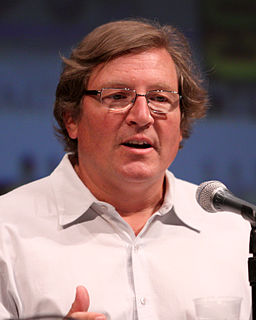A Quote by Caroline Polachek
Yes, when I come up with ideas on my own, it's almost always a melody, just as often an instrument or bassline as it is a vocal. But it is a single, linear, monophonic thing. Something you could hum or whistle.
Related Quotes
Usually it's lyric first, but sometimes it's melody. And I carry a hand-held recorder everywhere I go so I can just hum or whistle a melody if one hits me. Sometimes it's both simultaneously - lyric and melody at the same time - those are a little confusing to me, but sometimes it comes in that form. I just feel like I have my own little radio station and sometimes the static clears and something beams in from out there.
Wherever inspiration comes from, it's like I'll hear a melody and chords, almost a rough structure of the whole thing [song]. I'll just hear it and chase what's in my head. The rest comes from jamming with band, improvising, seeing what comes up as well. I'll come up with it off the top of my head, catch it, sing and hum, and if something is missing, just jam, and that's the [songwriting] process.
When I write a song and come up with an arrangement and a vocal part, it's always a challenge trying to find a singer who can interpret it sort of the way that I hear it, and it's a very difficult thing to do. I mean, singing is like playing an instrument - everybody does it a little bit different - singing maybe even more so.
I think it all comes back to the individual. My instrument's just a pile of metal and wood! If you listen to the way I speak I have a lot of rhythm, use a lot of accents. When I'm playing my instrument that concept comes through very clearly. In fact some people who've seen me play have noticed that I'm singing - but it's more that I'm actually speaking. So it's not really about the instrument. But for me, in my thinking, the music is all about the melody. When I compose, 99 percent of the time I start with the melody.
The eternal is omniembracing and permeative; and the temporal is linear. This opens up a very high order of generalizations of generalizations. The truth could not be more omni-important, although it is often manifestly operative only as a linear identification of a special-case experience on a specialized subject.
We've never pulled from the toy line. We've always pulled from the mythology. What's great is there's so much mythology, so there's always stuff to pull from that. It never lines up perfectly for a movie; it's just like adapting a book or anything else, you know? But you come up with things to create, you come up with different ideas, but fundamentally the ideas always start from the mythology.
